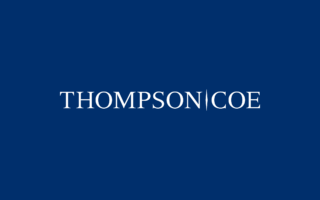Fifth Circuit Holds that Texas Law Immunizes Law Firm from Liability for Alleged Misrepresentations Made to Excess Insurer
By J. Richard Harmon, Jo Allison (Jody) Stasney • Jan 2, 2019
Ironshore Eur. DAC v. Schiff Hardin, L.L.P.No. 18-40101 (5th Cir. Jan. 2, 2019)
In a January 2, 2019 opinion, the Fifth Circuit found that attorney immunity applies to liability for negligent misrepresentations and omissions made to non-clients, including excess insurers, provided that the attorney’s conduct, even if wrongful, was in connection with representing a client in litigation. Based on its Erie guess regarding the scope of attorney immunity under Texas law, the Fifth Circuit reversed a district court’s denial of law firm Schiff Hardin’s Rule 12(b)(6) Motion to Dismiss and rendered judgment in favor of the firm.
Ironshore filed suit against Schiff Hardin following a $34.4 million jury verdict rendered against Schiff Hardin’s client, and Ironshore’s insured, Dorel Juvenile Group, Inc. (“Dorel”), resulting from a 2013 car accident that left a child, who was seated in a forward-facing car seat manufactured by Dorel, paralyzed. The child’s parents filed suit against Dorel alleging negligence, gross negligence, marketing defect, and failure to adequately warn consumers of the risks posed by the use of forward-facing car seats with young children.
Dorel was self-insured up to $6 million. Ironshore issued an excess liability insurance policy to Dorel with $25 million limits above the $6 million self-insured retention. Ironshore’s policy gave it the right to associate with Dorel in the defense of any claim, and in the event Ironshore exercised that right, required Dorel to cooperate and promptly provide any litigation-related information requested by Ironshore.
Dorel retained Schiff Hardin as defense counsel in the underlying litigation. Schiff Hardin provided reports regarding developments in the litigation and its opinions of settlement value and potential judgment value. After the jury awarded the child’s parents $34.4 million, Ironshore retained counsel and participated in a post-verdict mediation, reaching a confidential settlement implicating its layer.
Ironshore sued Schiff Hardin, asserting a cause of action for negligent misrepresentation pursuant to the Restatement (Second) of Torts § 552, [1] previously adopted by the Texas Supreme Court. Ironshore alleged that the firm made various misrepresentations and omissions in the course of reporting on the litigation to Ironshore, including making false statements in verbal and written reports and failing to disclose certain information about the underlying suit’s facts and settlement and judgment value. For instance, Ironshore contended that Schiff Hardin misrepresented the potential jury verdicts and settlement values and reported that trial was going fairly well, but failed to disclose adverse pre-trial rulings and a pre-trial settlement offer of $3.25 million. Ironshore alleged that the firm’s conduct led it to believe that the suit posed no threat of exposure to its policy.
Schiff Hardin filed a Rule 12(b)(6) Motion to Dismiss, asserting that it was entitled to attorney immunity under Texas law from liability to third parties for conduct taken in the course and scope of representing a client, even if that conduct was wrongful. The federal district court granted the Motion to Dismiss, in part, but denied an entire dismissal, ruling that immunity did not extend to factual misrepresentations and omissions made by an attorney. Schiff Hardin appealed to the Fifth Circuit.
The Fifth Circuit disagreed with the district court’s opinion regarding the scope and application of Texas’s attorney immunity defense. The Fifth Circuit noted that Texas courts broadly apply attorney immunity to “ensure loyal, faithful, and aggressive representation by attorneys employed as advocates by avoiding the inevitable conflict that would arise if they were forced constantly to balance their own potential exposure against their client’s best interest.”
In making its Erieguess, the Fifth Circuit relied on two recent opinions from the Texas Supreme Court, Cantey Hanger, LLP v. Byrd and Youngkin v. Hines, holding that “an attorney may be liable to non-clients only for conduct outside the scope of his representation of his or her client or for conduct foreign to the duties of a lawyer, which inquiry correctly focuses on the kind of conduct at issue rather than the alleged wrongfulness of said conduct.” The panel focused on the supreme court precedent that attorney immunity applies to allegations of intentional and fraudulent conduct by an attorney-so long as the kind of conduct at issue is the type “in which the attorney engages to discharge his duties to his client.”
The Fifth Circuit acknowledged that an attorney may be liable for a negligent misrepresentation where “an independent duty to the non-client arises.” Absent proof of such duty, however, the panel held that the attorney immunity doctrine under Texas law shields an attorney against claims by a non-client based on negligent misrepresentation as long as the misrepresentation is made in the course of the counsel’s representation of its clients.
Based on this rule, the Fifth Circuit determined that it was bound to look beyond Ironshore’s characterization of Schiff Hardin’s conduct and “simply look to the general kind of conduct at issue and determine whether attorneys engage in that kind of conduct when discharging duties to a client.” Under this lens, the panel ruled that dismissal of the lawsuit was proper as “Schiff Hardin’s conduct [fell] squarely within the scope of the firm’s representation of its client.”
At the conclusion of the opinion, the Fifth Circuit stressed that Schiff Hardin’s first duty was to its client, Dorel, and “it was up to Ironshore to retain its own counsel if it was dissatisfied with the comprehensiveness of the information it was receiving from its insured’s attorneys.”
Please do not hesitate to email one of our Insurance Litigation attorneys if you have any questions about this ruling and how it affects your business.
[1] “One who, in the course of his business, profession or employment, or in any other transaction in which he has a pecuniary interest, supplies false information for the guidance of others in their business transactions, is subject to liability for pecuniary loss caused to them by their justifiable reliance upon the information, if he fails to exercise reasonable care or competence in obtaining or communicating the information.” Restatement (Second) of Torts § 552 (Am. Law Inst. 1977).





